The human body begins to consume energy from the moment of birth, primarily referring to the innate essence of kidney qi. This essence can be likened to a gas tank that diminishes with use. Therefore, in this sense, compared to the absolute value at birth, “deficiency” is absolute, while “non-deficiency” is relative.
1. Types of Deficiency: Qi Deficiency, Blood Deficiency, Yin Deficiency, and Yang Deficiency
1 Qi Deficiency:
Qi deficiency refers to a state where a person feels a lack of energy, both physically and mentally, leading to fatigue even with slight exertion. The body’s immune function and disease resistance are relatively low.
The main manifestations of qi deficiency include: shortness of breath, low energy, a weak voice, shortness of breath upon exertion, easy sweating, dizziness, palpitations, pale complexion, poor appetite, signs of internal heat, spontaneous sweating, rectal prolapse, uterine prolapse, a pale and swollen tongue with tooth marks on the sides, and a weak pulse. This indicates functional decline, which may not necessarily indicate disease. Those with qi deficiency need to tonify qi, and suitable herbs for this purpose include Ren Shen (Ginseng), Huang Qi (Astragalus), and Dang Shen (Codonopsis).

Qi Deficiency includes deficiency of the five organs:
Lu Qi Deficiency:The lungs govern qi, control respiration, and connect with the skin and hair. When lung qi is deficient, its functions of dispersing and descending, regulating water metabolism, and resisting external pathogens weaken, leading to symptoms such as shortness of breath, spontaneous sweating, a weak voice, cough, chest tightness, susceptibility to colds, and even edema and difficulty urinating.
Kidney Qi Deficiency:The kidneys reside in the lower back, store essence, and control the opening and closing of the two yin. Essence nourishes the five organs and supports the brain. When kidney qi is deficient, it fails to nourish, resulting in fatigue, dizziness, forgetfulness, weakness in the lower back and knees, frequent clear urination, thin white discharge, a pale tongue, and a weak pulse. If the kidneys do not receive qi, breathing becomes shallow and rapid.
Spleen Qi Deficiency:The spleen is located in the middle jiao, governs transformation and transportation, and controls the upward movement of clear qi and blood circulation. When spleen qi is weak, it cannot transform food into essence, leading to insufficient qi and blood production, with symptoms such as reduced appetite, discomfort after eating, fatigue, weight loss, loose stools, a pale yellow complexion, a pale tongue with thin coating, and a weak pulse.

Heart Qi Deficiency:The heart governs blood vessels and houses the spirit. When heart qi is deficient, it cannot circulate blood or nourish the spirit, leading to symptoms such as palpitations, shortness of breath, excessive sweating, fatigue, a pale tongue, and a weak pulse.
Foods to Tonify Qi:Beef, chicken, pork, glutinous rice, soybeans, white lentils, jujubes, crucian carp, carp, quail, yellow eel, shrimp, mushrooms, etc. can be alternated regularly.
Foods to Avoid for Qi Deficiency:Hawthorn, bergamot, betel nut, garlic, turnip greens, coriander (cilantro), rutabaga, pepper, cardamom, middle finger, perilla leaves, mint, lotus leaves;
Foods to Limit:Buckwheat, pomelo, mandarin, kumquat, kumquat cake, orange, water chestnut, raw radish, earthworm, mustard greens, garlic chives, jundacai, sand fruit, chrysanthemum, tea leaves, and tobacco.
Recommended Dishes:Huai Shan, lily, and lotus seed soup; ginseng and medicinal pigeon stew; five-spice beef; peanut and jujube braised pig trotters;
2 Blood Deficiency:
The main manifestations of blood deficiency include: pale yellow complexion, pale lips and nails, dizziness, fatigue, blurred vision, palpitations, insomnia with vivid dreams, dry stools, women experiencing irregular menstruation with light flow and pale color, a pale tongue, slippery coating with little moisture, and a thin weak pulse. To tonify blood, one should use methods that nourish and generate blood, with suitable herbs including Dang Gui (Angelica Sinensis), Ejiao (Donkey-hide Gelatin), Shu Di Huang (Rehmannia), and Sang Shen (Mulberry).

Causes of Blood Deficiency:
Excessive Blood Loss:Excessive blood loss due to trauma, heavy menstruation, or other chronic blood loss can lead to blood deficiency. Prolonged blood loss can cause blood stasis and obstruction, leading to further bleeding and affecting the generation of new blood, thus worsening blood deficiency.
Irregular Diet:Overeating, irregular eating patterns, picky eating, and malnutrition can damage the spleen and stomach, leading to insufficient transformation of food into essence, resulting in blood deficiency.
Chronic Consumption:Excessive labor, major illnesses, prolonged illnesses, or excessive sweating, vomiting, and diarrhea can deplete qi and blood, leading to blood deficiency.
Foods to Tonify Blood:Black-boned chicken, black sesame, walnut meat, longan meat, chicken, pig’s blood, pig liver, brown sugar, red beans, etc. can be alternated regularly.
Foods to Avoid for Blood Deficiency:Water chestnut, garlic;
Recommended Dishes:Dang Gui, Shu Di, and black-boned chicken; Huai Shan and beef stew; Huai Ju and ribbon fish; rose and Huai Ju drink;
Foods to Limit:Seaweed, grass cardamom, lotus leaves, white wine, mint, chrysanthemum, betel nut, raw radish, etc.
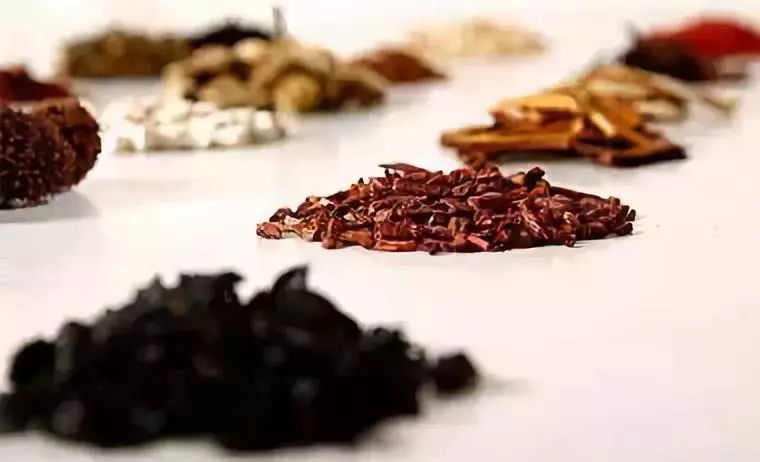
3 Yin Deficiency:
Also known as Yin Deficiency with Excess Heat, commonly referred to as “Empty Heat,” the main manifestations of yin deficiency include: fear of heat, irritability, flushed cheeks, dry mouth and throat, dry stools, short and yellow urine, a tongue with little moisture, five palms (the palms of both hands, both feet, and the top of the head) feeling hot, night sweats, lower back pain, nocturnal emissions, a red tongue, thin or peeled coating, and a thin rapid pulse. To tonify yin deficiency, one should use methods that nourish and support yin, with suitable herbs including Sheng Di Huang (Raw Rehmannia), Mai Dong (Ophiopogon), Yu Zhu (Polygonatum), Zhen Zhu Fen (Pearl Powder), Yin Er (Tremella), Dong Chong Xia Cao (Cordyceps), Shi Hu (Dendrobium), and Gui Ban (Tortoise Shell).
Overall Characteristics of Yin Deficiency:Characterized by a deficiency of yin fluids, with symptoms such as dry mouth and throat, and heat in the palms and soles.
Physical Characteristics:Typically lean body type.
Common Manifestations:Heat in the palms and soles, dry mouth and throat, slightly dry nose, preference for cold drinks, dry stools, red tongue with little moisture, and thin rapid pulse.
Psychological Characteristics:Impatient temperament, extroverted, active, and lively.
Tendency to Illness:Prone to conditions such as deficiency fatigue, sperm loss, and insomnia; susceptible to external pathogens and heat transformation.

Adaptability to External Environment:Can tolerate winter but not summer; sensitive to heat, dryness, and external pathogens.
Foods to Tonify Yin:Soft-shelled turtle, bird’s nest, lily, duck meat, black fish, jellyfish, lotus root, enoki mushrooms, goji leaves, water chestnuts, etc. can be alternated regularly.
Foods to Avoid for Yin Deficiency:Pepper, cinnamon;
Foods to Limit:Dog meat (for patients with cerebrovascular issues), lamb (for hepatitis patients), sparrow meat, seahorse, deer meat, crispy rice, fried peanuts, fried soybeans, popcorn, lychee, longan, bergamot, bayberry, garlic, chives, mustard greens, spicy peppers, garlic chives, ginger, cardamom, betel nut, grass cardamom, flower pepper, white cardamom, star anise, fennel, clove, mint, white wine, cigarettes, red ginseng, cistanche, and cynomorium.
Recommended Dishes:Golden pot tofu; Huai Shan small bundle meat; Huai Ju jujube and tremella soup; soft-shelled turtle and Huai Niu Xi soup; farmer’s grilled fish; Huai Shan one-piece elbow; golden pot tofu; Huai Shan stewed native chicken; ginseng and medicinal pigeon stew; He Shou Wu stewed pig liver;
4 Yang Deficiency:
Also known as Yang Deficiency with Weak Fire, this is a further development of qi deficiency. The main manifestations of yang deficiency include: in addition to symptoms of qi deficiency, there is a fear of cold, cold extremities, preference for hot drinks, often low body temperature, lower back and leg weakness, impotence, cold pain in the lower abdomen, fatigue, difficulty urinating, a pale and swollen tongue, white coating, and a deep thin pulse. To tonify yang deficiency, one should use methods that warm and support yang, with suitable herbs including Hong Shen (Red Ginseng), Lu Rong (Deer Antler), Du Zhong (Eucommia), Chong Cao (Cordyceps), Gui Pi (Cinnamon), and Hai Ma (Seahorse).

Foods to Tonify Yang:Beef, dog meat, lamb, bull penis, sea cucumber, mussels, walnut meat, longan, quail, eel, shrimp, chives, cinnamon, fennel, etc. can be alternated regularly.
Foods to Avoid for Yang Deficiency: Duck meat, rabbit meat, otter meat (water dog meat), sweet melon;
Foods to Limit:Duck blood, duck eggs, Ejiao, milk, yogurt, soft-shelled turtle, crab, field snail, snail meat, clam meat, conch meat, persimmon, dried persimmon, pomelo, mandarin, banana, fig, watermelon, green bitter melon, sweet potato, vegetable melon, raw lotus root, raw radish, loofah, winter melon, seaweed, earth ear, enoki mushrooms, straw mushrooms, jundacai, monk fruit, water chestnut, chrysanthemum brain, mint, honeysuckle, chrysanthemum, and sophora flowers.
Recommended Dishes:Seahorse and chicken soup; three-penis nourishing soup; chives and shrimp stir-fry; stir-fried kidney; long-life stewed old duck;
5 Dual Deficiency:
Individuals with deficiency often exhibit dual deficiency, which can manifest in the following ways:
Qi and Yin Dual Deficiency:Characterized by both qi and yin deficiency, with symptoms of dizziness, fatigue, and weakness in the legs, along with signs of heat, dry throat, and a red tongue. This condition is termed qi and yin dual deficiency, and treatment should focus on tonifying both qi and yin.
Yin and Yang Dual Deficiency:Characterized by both yin and yang deficiency, with symptoms of fear of cold and heat, particularly cold in winter and heat in summer. This condition indicates an imbalance of yin and yang, and treatment should focus on nourishing both.
Qi and Blood Dual Deficiency:This condition generally occurs in cases of anemia, leukopenia, thrombocytopenia, after significant blood loss, or in women with heavy menstruation. Symptoms include both qi and blood deficiency. Treatment should focus on tonifying both qi and blood.
Recommended Dishes: Qi and blood: crucian carp and tofu soup; qi and blood dual tonifying soup; medicinal chicken;
2. Foods that Tonify Qi also Benefit Spleen Qi, Lung Qi, Heart Qi, etc.
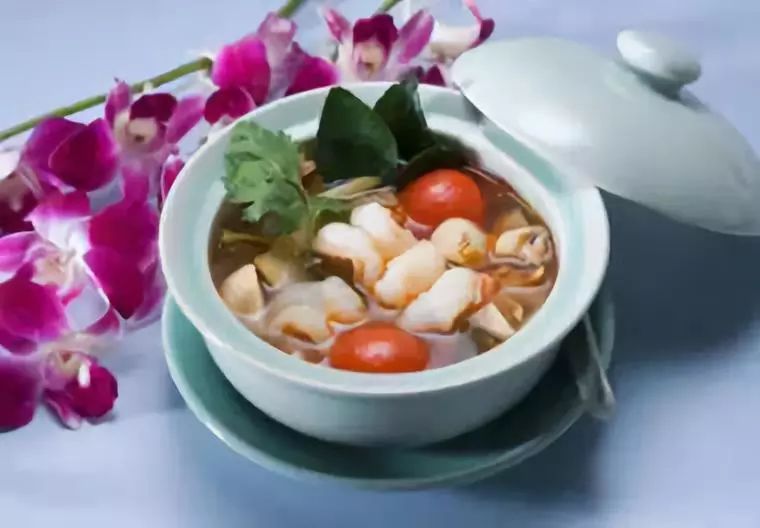
These foods are beneficial for alleviating or improving qi deficiency symptoms. Here, we mainly introduce foods that tonify spleen qi. When using qi tonifying foods, they may sometimes cause qi stagnation, leading to symptoms such as chest tightness, abdominal bloating, and loss of appetite. Therefore, it is advisable to combine them with qi-regulating foods such as Chen Pi (Dried Tangerine Peel) and Sha Ren (Amomum).
Potato (Yam, Sweet Potato) – Sweet, Neutral.
Function: Tonifies qi and strengthens the spleen. Suitable for those with spleen deficiency, poor appetite, and digestive issues. Sprouted potatoes and their skins are toxic and should be avoided.
Sweet Potato (Sweet Potato, Yam) – Sweet, Neutral, enters the Spleen and Stomach channels.
Function: Tonifies the spleen and stomach, boosts energy, and aids digestion. Suitable for those with spleen and stomach weakness, thin body, and fatigue. Excessive consumption may cause acid reflux and gastrointestinal bloating.
Shiitake Mushroom – Sweet, Neutral.
Function: Benefits stomach qi and alleviates rashes. Suitable for those with spleen and stomach weakness, poor appetite, and fatigue. It is a triggering food, so it should be avoided in cases of measles, skin diseases, and allergies.
Yam – Sweet, Neutral, enters the Spleen, Lung, and Kidney channels.
Function: Tonifies qi, strengthens the spleen, nourishes yin, benefits the lungs, and stabilizes essence. Suitable for those with spleen qi deficiency, poor appetite, and chronic diarrhea. Should be avoided in cases of excessive dampness and qi stagnation.
Chestnut – Sweet, Warm, enters the Spleen, Stomach, and Kidney channels.
Function: Tonifies the spleen, strengthens the stomach, nourishes the kidneys, and invigorates blood. Suitable for those with spleen deficiency, poor appetite, and diarrhea. Should be avoided in cases of qi stagnation and abdominal bloating.
Red Date (Jujube) – Sweet, Warm, enters the Spleen and Stomach channels.
Function: Tonifies the spleen and stomach, nourishes blood, and calms the spirit. Suitable for those with spleen and stomach weakness, poor appetite, and fatigue. Should be avoided in cases of qi stagnation, damp-heat, and constipation.
Chicken – Sweet, Warm, enters the Spleen and Stomach channels.
Function: Tonifies the middle, benefits qi, and nourishes essence. Suitable for those with spleen and stomach weakness, fatigue, and poor appetite. Should be avoided in cases of excess conditions, heat conditions, and after skin diseases.
Rabbit Meat – Sweet, Cool.
Function: Tonifies the middle, benefits qi, and cools blood and detoxifies. Suitable for those with spleen deficiency, poor appetite, blood heat, vomiting, and constipation. Should be avoided in cases of deficiency-cold and diarrhea.
Pork Stomach (Pig Stomach) – Sweet, Warm.
Function: Tonifies the spleen and stomach. Suitable for weakness, diarrhea, and is used in modern times for gastric prolapse and peptic ulcers.
Beef Stomach (Beef Tripe) – Sweet, Warm.
Function: Benefits the spleen and stomach, nourishes the five organs. Suitable for post-illness qi deficiency, spleen and stomach weakness, and digestive issues.
Lamb Stomach (Lamb Tripe) – Sweet, Warm.
Function: Tonifies weakness and benefits the spleen and stomach. Suitable for those with a thin body and spleen and stomach coldness.
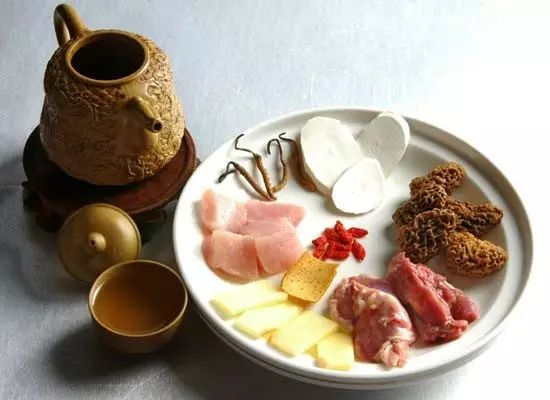
Beef – Sweet, Neutral, enters the Spleen and Stomach channels.
Function: Tonifies the spleen and stomach, benefits qi and blood, strengthens muscles and bones. Suitable for those with spleen and stomach weakness, poor appetite, and chronic diarrhea.
Gui Fish – Sweet, Neutral, enters the Spleen and Stomach channels.
Function: Tonifies the spleen and stomach, benefits qi and blood. Suitable for those with spleen and stomach weakness and poor appetite. Should be avoided in cases of deficiency-cold and damp-heat.
Loach – Sweet, Neutral, enters the Spleen and Lung channels.
Function: Tonifies qi, benefits water metabolism, and eliminates dampness. Suitable for those with insufficient middle qi, diarrhea, and rectal prolapse.
Japonica Rice (White Rice) – Sweet, Neutral, enters the Spleen and Stomach channels.
Function: Tonifies qi, strengthens the spleen, and harmonizes the stomach. Suitable for those with insufficient middle qi, fatigue, poor appetite, and diarrhea.
Indica Rice – Sweet, Warm, enters the Lung, Spleen, and Heart channels.
Function: Tonifies the spleen and stomach, nourishes the five organs. Suitable for those with spleen deficiency and dampness leading to diarrhea. Should be avoided in cases of heat conditions, damp-heat conditions, and yin deficiency.
Glutinous Rice – Sweet, Warm, enters the Spleen, Stomach, and Lung channels.
Function: Tonifies qi, benefits the lungs, and restrains sweating. Suitable for those with spleen deficiency and diarrhea, and is used in modern times for chronic gastritis and peptic ulcers. Should be avoided in cases of food stagnation, qi stagnation, dampness, spleen deficiency, and digestive issues.
Broad Bean – Sweet, Slightly Warm, enters the Spleen and Stomach channels.
Function: Strengthens the spleen, eliminates dampness, and clears heat. Suitable for those with spleen deficiency and dampness leading to diarrhea. Should be avoided in cases of qi stagnation and abdominal bloating.
Cowpea – Sweet, Neutral, enters the Spleen and Kidney channels.
Function: Strengthens the spleen and nourishes the kidneys. Suitable for those with spleen and stomach weakness, diarrhea, and vomiting. Should be avoided in cases of qi stagnation and constipation.
Honey – Sweet, Neutral, enters the Spleen, Lung, and Large Intestine channels.
Function: Tonifies the spleen, moistens the lungs, stops cough, and lubricates the intestines. Suitable for those with spleen and stomach weakness, stomach pain, and dryness leading to constipation. Should be avoided in cases of dampness, damp-heat, abdominal bloating, vomiting, and diarrhea; should not be consumed with scallions or lettuce.
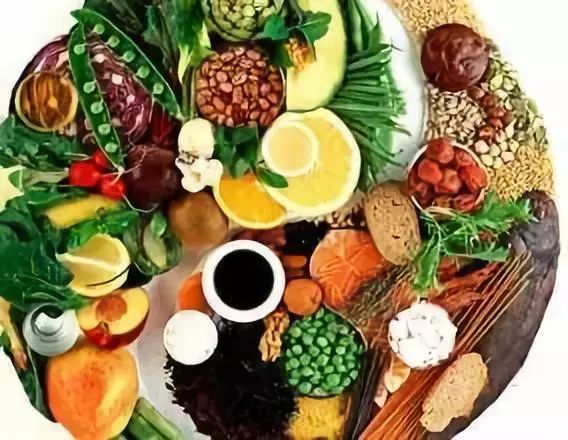
3. Four Different Dietary Supplementation Methods Based on Different Constitutions:
Neutral Supplementation:Can be consumed by both healthy individuals and patients. Helps maintain health and life: such as grains, legumes, dairy, fruits, and vegetables. These foods have a neutral nature and can be consumed by women with yin deficiency, yang deficiency, qi deficiency, and blood deficiency.
Warm Supplementation:Refers to foods with warm properties, such as beef, lamb, yellow eel, sweet foods, red dates, longan, lychee, and spicy foods like scallions and ginger. Women who are sensitive to cold in winter can consume these foods to help generate warmth and improve their cold sensitivity, thus enhancing their constitution.
Cooling Supplementation:Refers to foods with cooling properties, such as pears, raw lotus root, celery, lilies, mung beans, cucumbers, soft-shelled turtles, and snails, which have a cooling effect.
Warm Dispersion:Refers to spicy and warm foods, such as chili peppers, cinnamon, mustard, coriander, and flower pepper. These foods have warming and dispersing effects, commonly used in cold winters to ward off cold and eliminate dampness.
4. Women’s Supplementation Should Start with Adjustment, Harmonizing the Internal and External Balance of the Body, Maintaining a State of Smooth Qi and Blood Flow, and Then Determining Whether Supplementation is Needed Based on the Situation.
Women’s physiological characteristics differ from men; blood is precious for women, and the key to supplementation lies in regulating blood, but it should be based on different situations and patterns.
Women with Qi Deficiency
Women with qi deficiency often present with weak complexion, pale skin, fatigue, excessive white discharge, and irregular menstrual cycles.
Supplementation Tips:Some qi tonifying herbs can be used for adjustment, such as Ren Shen (Ginseng), Huang Qi (Astragalus), Bai Zhu (White Atractylodes), Hong Zao (Red Dates), and Gan Cao (Licorice) for stewing with chicken or pork ribs to tonify qi. When using ginseng for supplementation at home, it is essential to be cautious, using small doses and short courses, and it is best to consult a doctor before use. Women with qi deficiency should consume foods that tonify qi, such as radishes, red dates, and pork rib soup, especially in autumn and winter; for herbal supplementation, they can drink the Si Jun Zi Tang (Four Gentlemen Decoction) made with Huang Qi, Ren Shen, Bai Zhu, and Gan Cao.
Women with Anemia or Blood Deficiency
The majority of women experience symptoms of blood deficiency, such as frequent dizziness, blurred vision, dull complexion, insomnia, vivid dreams, and irregular menstruation. Those with blood deficiency often have a thin body and poor physical condition.
Supplementation Tips:Regularly consume blood-nourishing foods such as spinach, black beans, carrots, daylilies, lotus root, black fungus, chicken, pork, lamb, and sea cucumber; fruits can include mulberries, grapes, red dates, and longan. Additionally, herbal supplementation can be combined, with commonly used blood-nourishing herbs including Dang Gui (Angelica Sinensis), Zang Hong Hua (Safflower), Shu Di Huang (Rehmannia), Chuan Xiong (Ligusticum), Bai Shao (White Peony), and Ejiao (Donkey-hide Gelatin). These herbs can be combined with blood-nourishing foods to create delicious medicinal dishes, such as Dang Gui and Ginger Lamb Soup, Ejiao Stewed with Yellow Wine, and Four Substance Chicken Soup, all of which have excellent blood-nourishing effects.
For women with irregular menstruation or heavy menstrual flow, they can use herbs such as Ren Shen (Ginseng), Dang Gui (Angelica Sinensis), Chuan Xiong (Ligusticum), and Huang Qi (Astragalus), or choose proprietary Chinese medicines like Wu Ji Bai Feng Wan (Black-Bone Chicken White Phoenix Pill) and Ejiao Blood Tonic. In daily life, they should consume sea cucumber, fish, shrimp, red dates, kiwi, grapes, longan, sesame, and spinach.
Women Who Are Cold-Sensitive
In cold seasons, many women feel cold all over, especially in the extremities. This is even more pronounced in menopausal women, who are particularly sensitive to cold in winter, a condition known as cold sensitivity.

Supplementation Tips:Cold-sensitive women should consume warming foods such as lamb, beef, dog meat, chicken, quail, garlic, chili peppers, ginger, coriander, onions, longan, and chestnuts to help ward off the cold. They should also consume iodine-rich foods such as kelp, jellyfish, seawater fish, and shrimp skins. It is essential to engage in suitable physical exercise, especially for women who sit or stand for long periods; they should prioritize physical activity and do more exercises for their hands, feet, and waist.
7. In summary, the types of deficiency in the human body can be categorized into four types: Qi Deficiency, Yang Deficiency, Blood Deficiency, and Yin Deficiency. Based on the different types of deficiency, appropriate tonifying herbs should be selected.
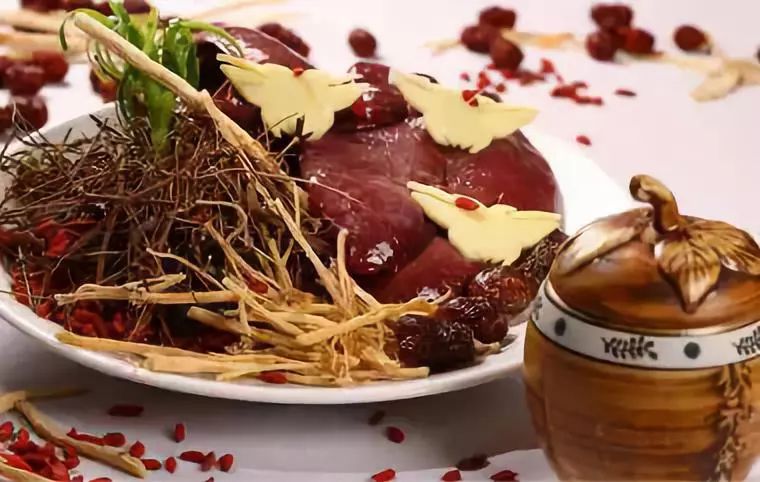
From a pathological perspective, both qi deficiency and yang deficiency generally refer to the decline in the functional activity of the organs and the reduction in disease resistance. Qi is energy, so qi deficiency indicates a simple decline in function, while yang deficiency is a further development of qi deficiency, characterized by a reduction in yang energy and heat, including metabolic disorders and reactions due to internal cold. Therefore, yang deficiency includes qi deficiency, but qi deficiency does not necessarily indicate yang deficiency.
Blood deficiency and yin deficiency refer to the loss and deficiency of the body’s material components. Blood deficiency indicates a simple lack of blood, such as anemia, or conditions with anemia symptoms but normal hemoglobin levels, while yin deficiency refers to a systemic deficiency of yin fluids (body fluids), including blood deficiency, leading to internal heat and hyperactivity of functions.
However, in the process of life activities, qi, blood, yin, and yang are interdependent and mutually influential. Generally speaking, qi deficiency and yang deficiency indicate a decline in the body’s activity capacity, with yang deficiency often accompanied by qi deficiency, and qi deficiency can also lead to yang deficiency; yin deficiency and blood deficiency indicate the depletion of the body’s essence and fluids, with yin deficiency often accompanied by blood deficiency, and blood deficiency can also lead to yin deficiency.

Therefore, dual deficiency of qi and blood, as well as dual deficiency of yin and yang, are also common conditions. Treatment should involve the use of both qi tonifying and blood tonifying herbs, as well as yin tonifying and yang tonifying herbs, known as the methods of dual tonification of qi and blood, and simultaneous tonification of yin and yang. Additionally, qi can generate blood and fluids, so conditions of qi deficiency and insufficient yin fluids are often treated with a combination of qi tonifying herbs and blood tonifying or yin tonifying herbs, i.e., tonifying qi to generate blood and benefit fluids.
Among the tonifying herbs for the human body, “only ginseng and He Shou Wu can draw the spirit of the earth and grow into human form. The foremost herb for tonifying qi is ginseng, and the source of blood tonification is He Shou Wu.” “Qi is the commander of blood, and blood is the mother of qi,” and the human body is composed of qi and blood.
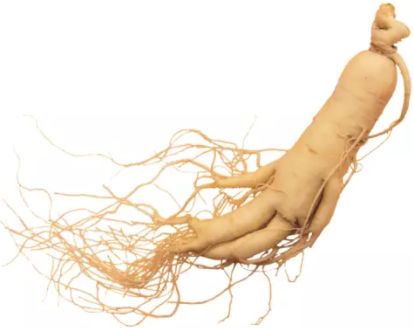
In summary, yin deficiency, yang deficiency, qi deficiency, and blood deficiency can be summarized with four words: heat, cold, laziness, and paleness. In fact, all deficiencies are related to blocked meridians; as long as we clear the body’s pathways, qi and blood can flow smoothly, and various deficiency symptoms will be balanced.
Previous Exciting Articles Review
A 21-minute Shock to the World of Chinese People (Text Version)
Community Marketing Collection
Zhang Dachun's Story Animation Video Collection!
Various First Aid Manuals (Collection)
Zhang Dachun's Nine Ice-breaking Language Collection
18:59
Click the public account below to follow and learn more knowledge
Click the bottom left to read the original text and learn more

